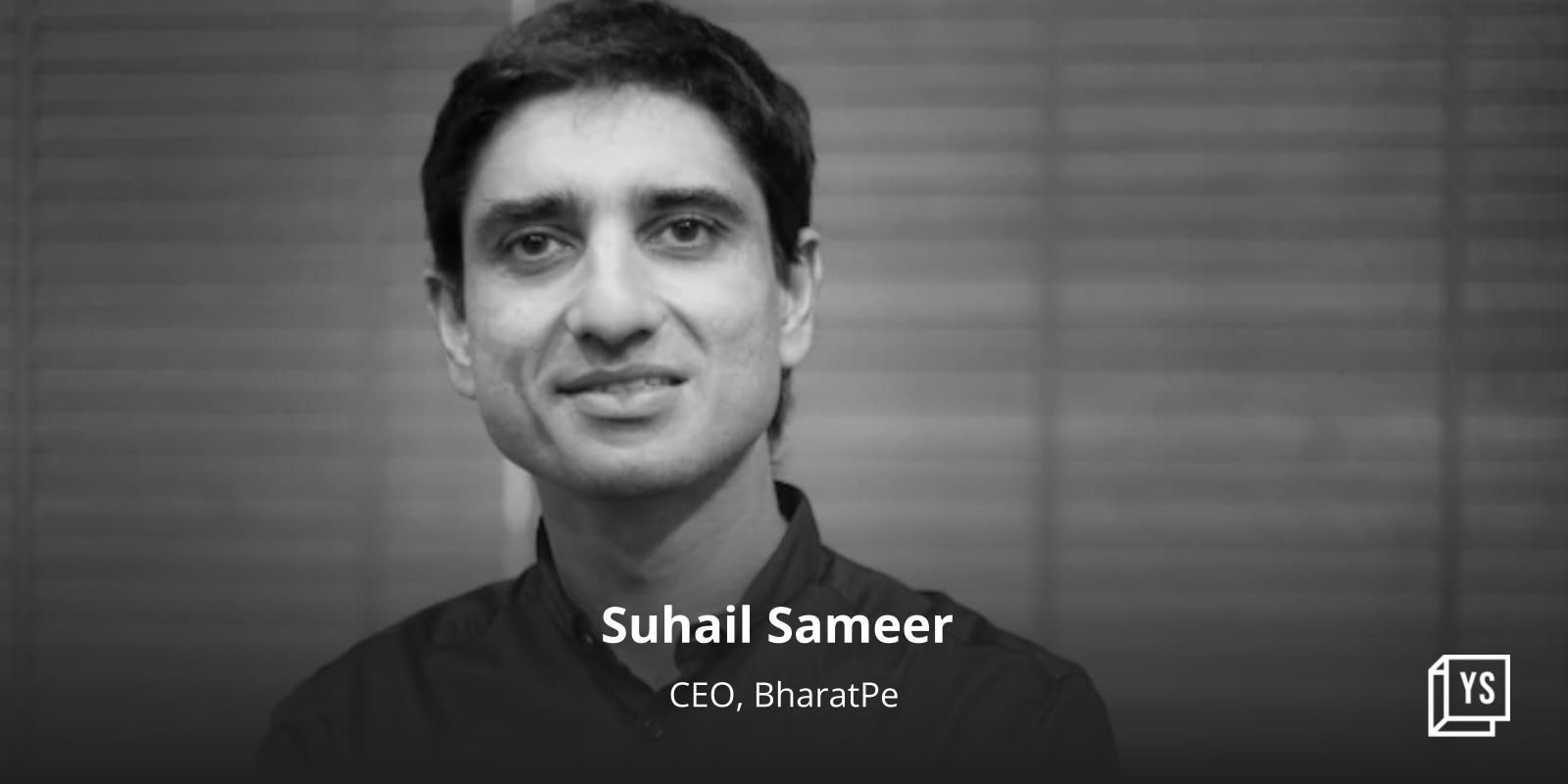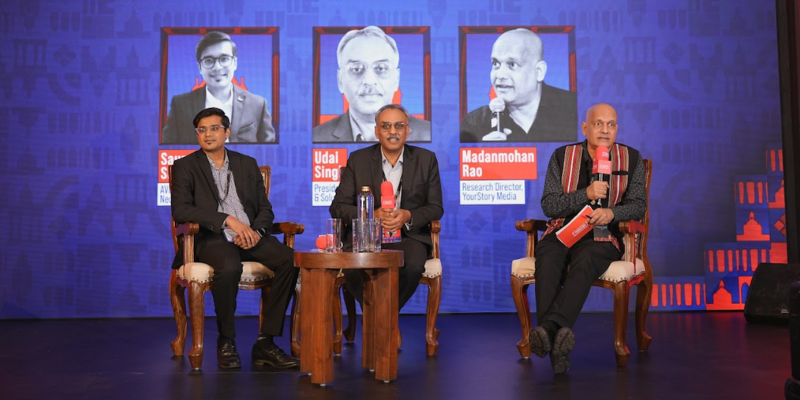Screw failure, just stay the course – 10 startup tips from Ronnie Screwvala
If failure is the most difficult obstacle for aspiring entrepreneurs, your greatest attribute is your ability and willingness to stay the course,
says media entrepreneur Ronnie Screwvala in his book, ‘Dream with Your Eyes Open: An Entrepreneurial Journey.’

The informative and entertaining read covers the experiences and lessons learnt over more than two decades of Ronnie’s career: toothbrush manufacturing, cable TV, broadcast content and movie studio. His media conglomerate UTV also produces digital content and games, and was divested to The Walt Disney Company in 2012.
Some of the movies produced by UTV from 1997 onwards include Dil Ke Jharoke Main, Fiza, Lakshya, Swades, Rang De Basanti, The Namesake, Khosla Ka Ghosla, Life in a Metro, Jodhaa Akbar, A Wednesday, Dev D, Peepli Live, Paan Singh Tomar, No One Killed Jessica, Delhi Belly, Rowdy Rathore, Barfi, Kai Po Che and Satyagraha.
Now into his ‘second innings,’ Ronnie is championing entrepreneurship in India and moving on to promoting sports like kabaddi and football. His Swades Foundation aims at empowering one million lives in rural India in the next five years.
This book is about ‘it can be done,’ not just ‘I did it.’ Here are my Top 10 takeways from the 13 chapters in this crisp 185-page book, a must-read for all entrepreneurs in India. (See also my book reviews of ‘Things a Little Bird Told Me: Confessions of the Creative Mind’ by Twitter Co-Founder Biz Stone, and ‘Eight Steps to Innovation’ by Vinay Dabholkar and Rishikesha Krishnan.)
1. Being an outsider has its advantages
Entering an industry from the outside has its advantages, such as a fresh perspective. Having a sense of curiosity will help you ask questions which incumbents may not think of. But to succeed in the domain, you need to build a team that complements and challenges you, advises Ronnie. Born to a Parsi family in Mumbai, Ronnie was still able to break into the Bollywood industry dominated by the traditional families and studios.
2. Don’t blindly follow the herd
Follow trends, but don’t just have herd mentality. “When we’re following the herd, all we see is the rear end of the person in front of us,” jokes Ronnie. UTV created innovative content and formats such as the daily soap opera Shanti, youth channel Bindaas, and kids’ channel Hungama. This was based on solid understanding of consumer needs, and a desire to innovative with new content and formats.
For example, Ronnie spotted a gap in the kids’ programming dominated by Cartoon Network – there was a real opportunity for local content and brands. “Every day is a new way to look at things afresh and question the constant,” he says.
3. Overcome failures by assessment, recalibration and pivoting
“Failure is a comma, not a full stop,” explains Ronnie in one of the best chapters of the book. “Failure is inevitable. Embrace failure,” he advises. Entrepreneurs must have a survival plan ready, and visualise worst case scenarios as well. Friends and mentors can bring in valuable new perspectives in this stage. Founders should accept, recalibrate, communicate, fix, learn and move forward when faced with failure.
Lessons from failure should also be captured so that you do not make the same mistake twice, something Ronnie learned the hard way when his Home Shopping Network did not work out as planned. “Failure, far from being an impediment, can open the door to a new treasure trove of learning,” says Ronnie. (See also my reviews of the books ‘The Wisdom of Failure’ and ‘Fail Better.’)
“Dealing with the inevitability of failure should be cathartic, not crushing,” advises Ronnie. Beware of naysayers, dream-killers and those with the ‘I told you so’ attitude. “You and your organisation can never learn and evolve without setbacks and failure,” he adds. Failure is more interesting and instructive than success.
4. Communication and culture are key to startup success
“Culture is the lifeblood of successful endeavours. Communication cements a company’s culture,” says Ronnie. Founders must communicate with courtesy, authenticity, charm, persuasiveness, clarity and inclusiveness. Even when UTV faced challenges after Doordarshan cancelled one of their shows, clear communication with his team helped Ronnie retain their support and bravely accept a deferment in their pay.
Offices need not be fancy, but should have liveliness, interaction and energy. Town halls and team gatherings are important ways to build and reinforce culture, not just in what the founder says but how it is said; a spirit of humour and wit also helps. Ronnie sends an annual email to all employees at the end of each year, reviewing the highlights and inspiring them to tackle the next year with well-branded and catchy calls to action.
5. Spot trends – and trucks
Founders should be able to “look around the bend” and spot new trends – as well as trucks which can run them over. Relentless analysis helps identify new opportunities; identifying risks and wrong courses is much harder. “Spotting trucks is one of the most difficult aspects of any enterprise,” says Ronnie, as well as being to cut losses, abandon projects and change tack. He learnt this the hard way through the movie flops Chance Pe Dance and Joker – he could see that the movies were not working out right halfway through production, but was not able to pull the plug.
6. When opportunity knocks, open the door
Spot and seize opportunities, and understand the power of vast untapped markets in India. “Today, more than ever, you need to see the big picture faster, quicker and better than anybody else in the room,” says Ronnie. One of his early career moves was actually in the toothbrush industry – he procured toothbrush-making machinery in the UK and imported it to India, spotting the huge opportunity quite by chance on an overseas trip.
7. Pursue inflection points
Spot and pursue larger inflection points beyond the numerous smaller opportunities. The vision and velocity for scale must come from founders, says Ronnie. For example, he spotted early on the opportunity for cable TV in India – and educated the market via demos, house calls and roping in hotel chains as customers. He rode the satellite wave by providing content for Zee TV, and later bought Vijay TV from Vijay Mallya.
8. Think positive, though the world is not equal or predictable
“The real source of success is people who generate their own breaks by working hard and focusing on a goal,” says Ronnie; complaining about lack of family wealth, proper education or adequate funding is not an excuse. “Believing yourself unequal marks the mindset of retreat,” he cautions. There is no need any more for founders in small towns to bemoan the lack of opportunity as compared to big cities – rural India is where the next wave of opportunity is, and the action is also not just in digital media or IT.
Don’t wait for good luck -- create it through perseverance, says Ronnie, recalling how the movie Rang de Basanti was not just a ‘lucky break’ as some critics termed it. The release of the movie had its moments of suspense, such as when the censors required it to be cleared by India’s military heads, which they fortunately did.
9. Stop obsessing about exits
Founders should focus most on business strategy, teams, brands and scale – rather than just investor goals and timelines. You can’t always time exits, observes Ronnie. Transitions during exits should keep all stakeholder interests in mind, and may sometimes require the founder to hand over the baton, which should not be regarded as abandoning ship. Investors do open new doors for entrepreneurs, but entrepreneurs must take steps to ensure they are not shortchanged, says Ronnie, recalling his experience with dozens of investors and large corporates from India, US, UK, Canada and Japan.
10. Stay the course
“Staying the course is about preparation, planning and agility in difficult times. It is about overcoming that crisis of confidence and ploughing on to reach your goals,” says Ronnie. He jokes that he was known as the ‘Cat of 20 Lives’ given how often he bounced back. Resilience is what separates industry leaders from obituaries, which calls for stamina, audacity and conviction. “Believe in your dream and live it every single day,” he says.
Entrepreneurship is a journey which anyone can start no matter what their background or education – but long term success comes from making it a journey, and not just dabbling with it for a year or two. “Entrepreneurship is a journey, not an outing,” says Ronnie. The journey of entrepreneurship can also take a founder through multiple innings. A successful founder can move on to a new domain, but keep the same spirit of disruptive innovation, he explains, with his own moves into kabbadi and rural entrepreneurship as examples.
“Success comes from harnessing ambition, hunger, passion and potential,” says Ronnie. Focus, prioritisation, empathy and honesty with oneself strengthen the entrepreneurial experience. “Just dream your own dream – and when you do it, dream with your eyes open,” he concludes.
The book has also received a wide range of endorsements, here is a sample below.
“I hope the book will encourage the youth of India to pursue their dreams, and in doing so, devote their energies to find innovative ways to build better lives for millions of Indians.” – Narendra Modi, Prime Minister of India
“[Ronnie] has the qualities I believe necessary for great leadership: embodying the spirit of curiosity and optimism, taking smart chances, and pursuing excellence always.” – Bob Iger, The Walt Disney Company
“I hope Ronnie’s story will be a beacon for entrepreneurs who seek to create their own next big leaps.” – James Murdoch, 21st Century Fox
“Entrepreneurship is as much about vision, creativity and courage as it is about the acumen of recognising what to do and what not to do, and knowing when to enter and when to exit a business.” - Kishore Biyani, Future Group
“Good entrepreneurs experience personal success. Great entrepreneurs multiply their success and help others rise along with them. Ronnie is a great entrepreneur.” – Anand Mahindra, Mahindra Group
“This is just the book we need for inspiring a Startup Nation!” – Nandan Nilekani, Co-Founder, Infosys










![[Funding alert] School communication platform Uolo raises Rs 20Cr led by Omidyar Network, Blume Ventures](https://images.yourstory.com/cs/2/803961002d6d11e9aa979329348d4c3e/Edtech-1602663315847.png)
![[Jobs Roundup] These openings may help you land a role in business travel SaaS startup ITILITE](https://images.yourstory.com/cs/2/ba9e8080834311ec9e7e95cb06cf6856/ITILITEnewfinal-1650268200560.png)